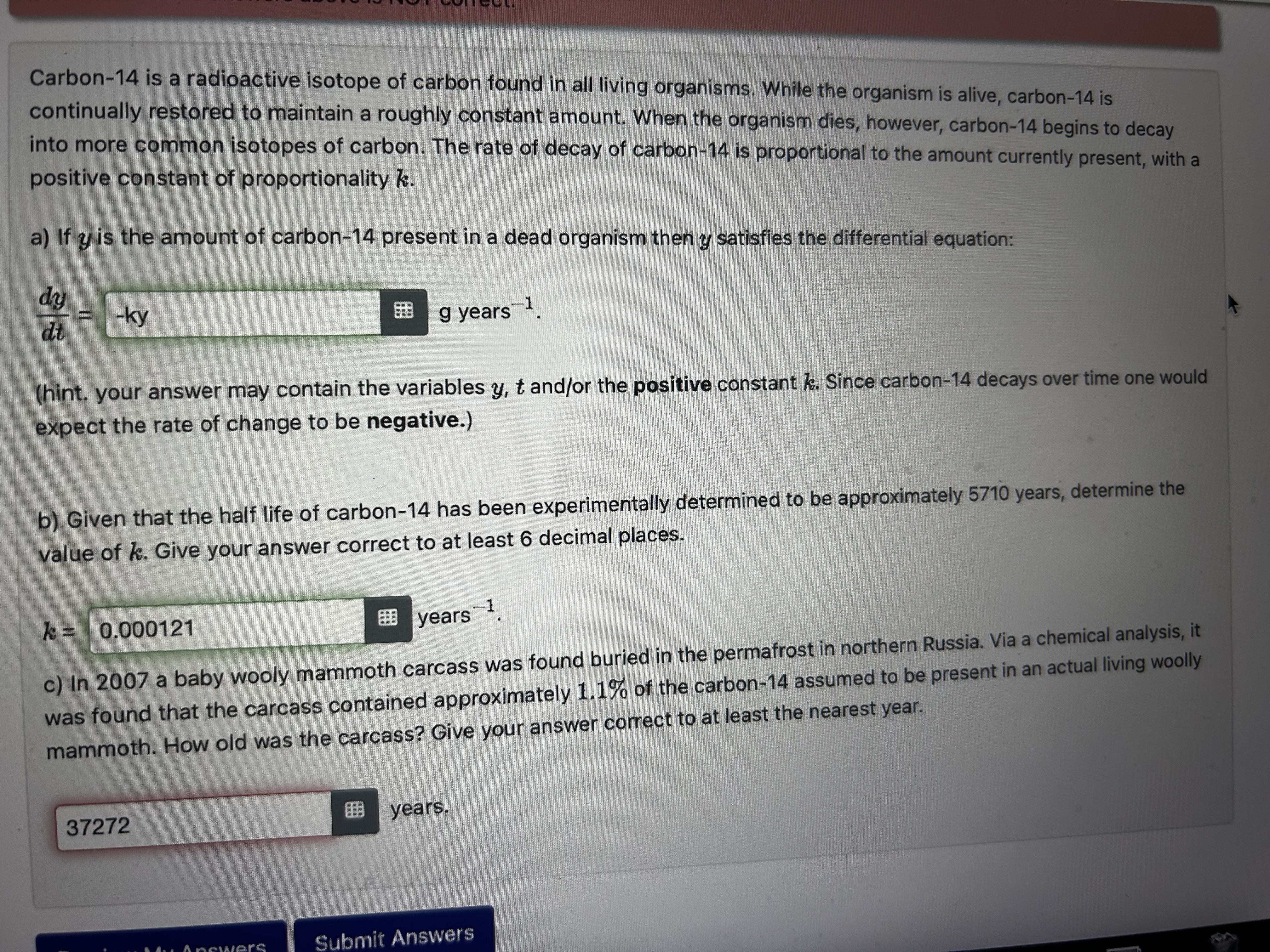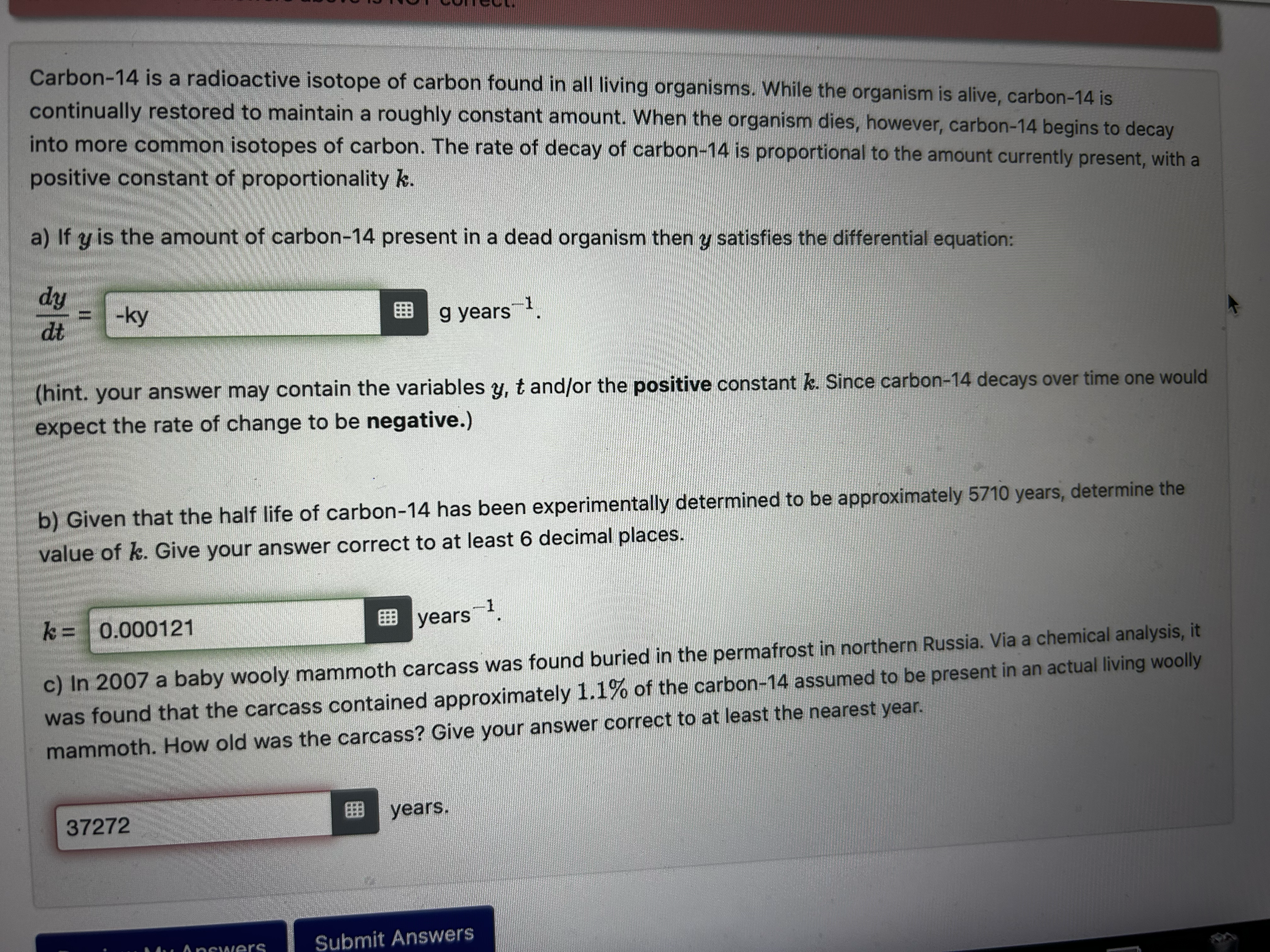Answered step by step
Verified Expert Solution
Question
1 Approved Answer
Carbon-14 is a radioactive isotope of carbon found in all living organisms. While the organism is alive, carbon-14 is continually restored to maintain a roughly


Step by Step Solution
There are 3 Steps involved in it
Step: 1

Get Instant Access to Expert-Tailored Solutions
See step-by-step solutions with expert insights and AI powered tools for academic success
Step: 2

Step: 3

Ace Your Homework with AI
Get the answers you need in no time with our AI-driven, step-by-step assistance
Get Started


